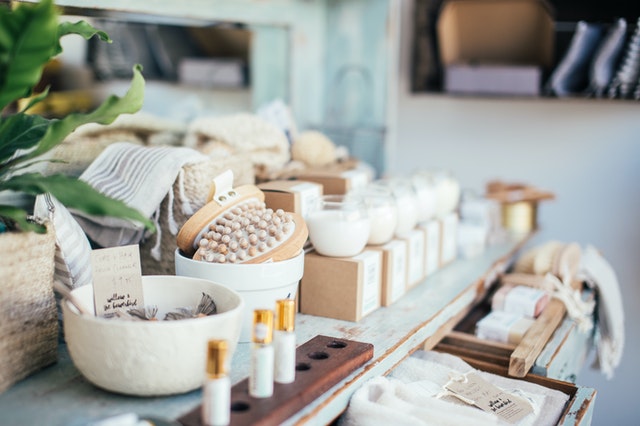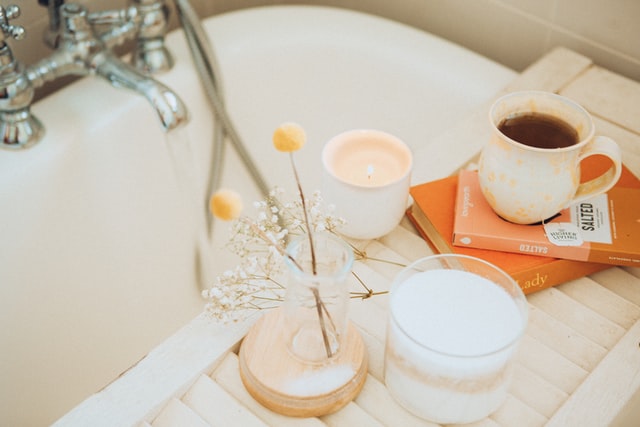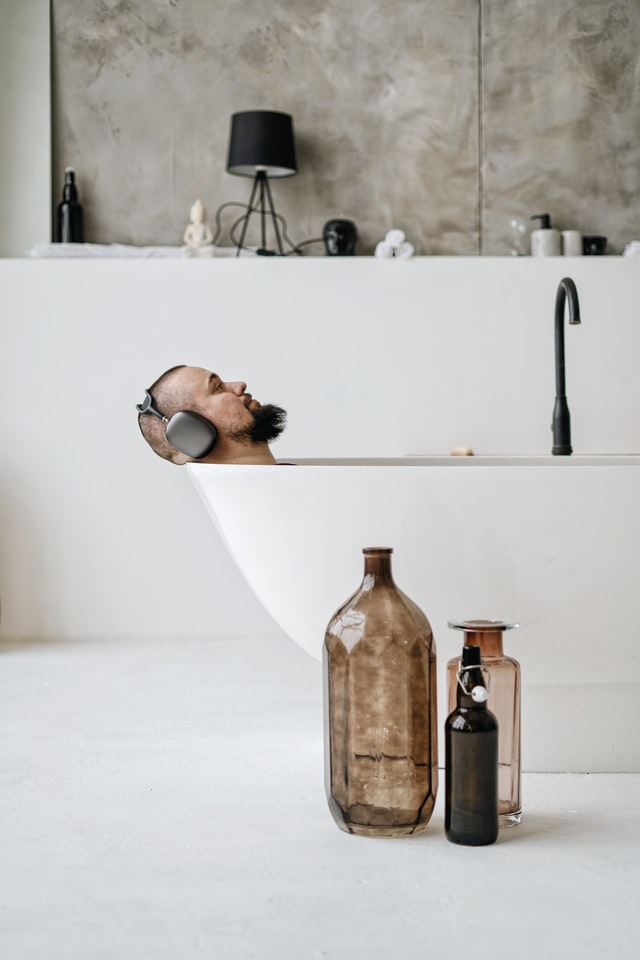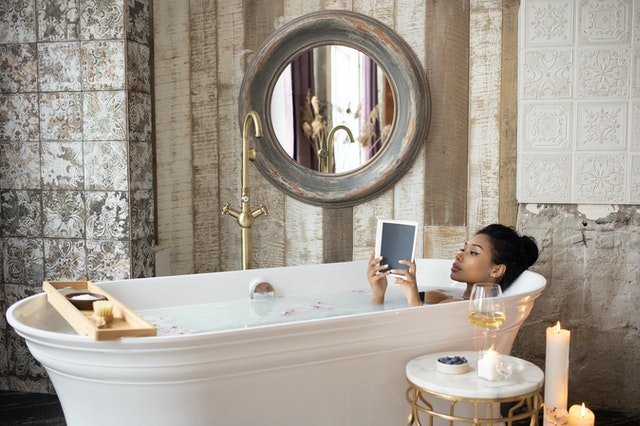Bathing has long been more than simply a cleaning process for many cultures around the world. To the ancients of Egypt, Greece, and Japan, bathing was associated with divine principles and an experience that could promote health or even social well-being. Ancient Egyptians believed that people could be closer to the gods the cleaner and more oiled they were. Essential oils formed a core aspect of bathing practices, and it was not uncommon for Egyptians to bathe multiple times per day. So in all essence, the ancients created the idea of bath therapy!
The ancient Greeks dedicated their baths to deities and considered bathing a sacred practice. Ancient Romans created elaborate public baths that played an influential role in citizens’ social lives. They also built thermal baths in various parts of their empire where natural hot springs are found. Japan’s social bathing culture dates to the sixth century; the Japanese believed bathing cleansed the body and the spirit.

Throughout the world, bathing and thermal spa traditions continue. The idea of “taking the waters” to enhance health is not only popular as a formal spa treatment. It is also a great activity that can be done almost anywhere. Here are some ideas and techniques you can use to enhance your bathing experience. These can be used while you visit your favorite spa, you’re on a lovely vacation, or in the comfort of your home!
Discover Some Interesting Bath Therapy Benefits
Taking a bath rids your body of dirt and sweat, but the process may also allow you to shed muscle aches and stress. Some experts believe that baths can even promote the healing of wounds or infected sores. They mention that luxuriating in a hot bath can offer many therapeutic health benefits like reduced blood pressure, reduced insomnia, and alleviated congestion. On the other hand, some people swear by cold or ice baths for their benefits to circulation and skin.
Many different bathing traditions may involve freshwater, saltwater, thermal springs, sauna treatments, scented oils, crystals, gems, and more. Each type of bathing experience can be associated with its own benefits. We’ll outline a few of the baths ideas that are too good to ignore and worth trying out.
Therapeutic Baths

A therapeutic bath is a bath that promotes certain benefits. While water alone can alleviate many different health-related symptoms due to proper human hygiene, yet according to many, adding additives such as essential oils can lead to even more significant relief. Adding minerals to baths as well as other ingredients is an ancient practice. During the time of the pharaohs, wealthy Egyptians were known to add milk and honey to baths. It was customary to add rose petals, lavender, or even citrus peels to bathwater in many Middle Eastern countries. These ingredients often enhanced the skin in some way and created a pleasurable, stress-relieving experience.
Today, some people continue to rely on bath therapy for important health benefits.
Therapeutic Baths for Muscle Relief
Sore muscles are a common complaint. Hot bath water eases muscle tension and tightness, resulting in standing on one’s feet most of the day or participating in athletics. As we age, it becomes easier to strain our muscles. A therapeutic bath soothes sore muscles and aches associated with injury. To enhance your bath for muscular relief, add essential oils like chamomile and lavender to the hot water or sea salt.
Therapeutic Baths for the Circulatory System
According to some experts, a warm bath can promote improved circulation. The warm water allows blood to flow easier. Harvard Health even reports that hot baths and saunas can reduce the risk of heart trouble. The hot temperatures cause the blood vessels to dilate and lower blood pressure.
Therapeutic Baths and Immune System Health
They say that a hot bath can improve immune system function. Because the hot water mimics the body’s fever response, it stimulates your immune system to go to work. A high-functioning immune system kills viruses and bacteria and improves your overall immunity.
Hormonal Health and Baths
It has been mentioned that adding Epsom salts to baths has long been associated with promoting hormone balance. Warm bath water or a thermal bath can trigger the release of serotonin, which can alleviate symptoms of anxiety or depression. On the other hand, taking a cold bath can improve balance for hormones released by the pituitary gland.
Pregnancy and Therapeutic Baths
Pregnant women have to be careful about the temperature of their baths. They should not take a bath in water that is above their body’s temperature. A bath can soothe a pregnant woman’s skin with a safe temperature, which may be sore from stretching. Adding Epsom salts to the bath can help soothe aching muscles and alleviate stress.
Detox and Therapeutic Baths
A detox bath may help you remove toxins from your body. The key to a successful detox bath is hot water. The hotter the water (naturally, you’ll want to be safe), the more you’ll sweat and trigger the release of toxins. You can enhance your detox bath by adding Epsom salt, baking soda, or even apple cider vinegar to the water.
Beauty Baths

Bath therapy can offer beauty and cosmetic enhancements to various aspects of our bodies, like our skin and hair. Historians report that Cleopatra of ancient Egypt bathed in sour milk to enhance the appearance and texture of her skin. The treatment worked because sour milk contains lactic acid, which is beneficial for the skin. Of course, there are other bathing techniques to employ these days to improve your skin’s beauty and the beauty of other features.
Here are some of the known benefits of bath therapy associated with beauty baths.
Skin Improvement
If you suffer from skin conditions or skin irritations, bathing can alleviate many associated symptoms. For instance, if you have itchy, dry skin, an oatmeal bath can improve symptoms and lead to softer, more supple skin.
Hair Improvement
Bathing can make your hair softer and even trigger it to grow longer! Warm water improves circulation, so that means your hair follicles get more stimulation. By immersing your hair in the water, you can slow the production of oils, and that means you have to shampoo your hair less frequently; frequent shampooing can dry out your hair and strip it of the natural oils it needs to look glossy and healthy.
Burn Calories
Luxuriating in a hot bath might not feel like much of a workout, but it burns calories. Is the rain preventing you from taking a walk? A hot bath can help you burn as many calories (about 130) as a 30-minute walk. Consequently, you can make bathing part of your fitness regimen.
Relaxation Baths

Bathing is soothing, and relaxation has some inspiring benefits you’ll want to keep in mind. Studies have shown that people who bathe more frequently feel healthier. Some of this benefit may be associated with the relaxation and stress relief that people experience when bathing.
There are many benefits of bath therapy known as relaxation baths.
Better Sleep
If you’re finding it difficult to sleep, you may be able to cure a bout of insomnia or improve sleep quality by taking a warm bath one to two hours before your bedtime. After a warm bath, the body temperature typically drops, which promotes better sleep. Consider adding a couple of drops of lavender oil or chamomile to the tub water; these herbs are associated with relaxation and improved sleep.
Improved Mood
A warm bath may not cure depression or other mental health disturbances, but it may alleviate symptoms and improve your mood temporarily. By relaxing in a warm tub, you can experience significant stress relief. Try listening to soothing music or an audiobook while you’re soaking in the tub because we all need some quality time.
Stress Relief
Stress can affect our moods as well as other aspects of our health. A bathing ritual can help you manage stress. A warm bath can trigger serotonin, a natural feel-good hormone. More serotonin often translates to reduced stress.
Mental Health
Relaxation is crucial for psychological health. Just as our bodies need rest, also our minds, a hot bath routine could help us manage the stress accumulated throughout the day. You can always customize your bath ritual in ways that feel most relaxing to you.
Hot Tub and Jacuzzi
I wanted to add a quick side note. These wonderful ideas don’t only have to be limited to your bathtub. They can be enjoyed in the comfort of a Hot Tub or a Jacuzzi. Especially if you are on vacation, it is the perfect time to try out some of these bath therapy ideas.

Bath Therapy Accessories to Create or Enhance Your Bath Experience
You can create a spa-like atmosphere in any bathroom to enhance your bathing experience. Here is a list of some accessories that you might want to include to improve the settings!

- Scented candles: Opt for soothing scents like lavender or lemon.
- Humidifier: You can get a hold of an amazing humidifier that is also an essential oil air diffuser like the Everlasting Comfort Humidifier 6L.
- Music: Listening to music can promote mindfulness, making it easier to shed stress. You can purchase waterproof speakers so you can enjoy your music.
- Reading material: If you don’t want to risk water damage to your book, listen to audiobooks while relaxing in the tub. You can also check out your favorite reading material on your laptop by adding a bathtub caddy.
- Bath Pillow: A water-resistant bath pillow encourages relaxation and helps to ease tension.
- Plants: Any house plants have air-purifying properties. They can improve the air quality of your bathroom, and some plants like eucalyptus can even ease congestion.
We hope you feel ready to create your own bath therapy rituals using the information outlined here. If you are not, you can always do more research. The point is for you to get the most out of this experience. We may not be the ancients. We may not be Cleopatra, or maybe you are in spirit; either way, you can do it as she did, explore, and enjoy!
Disclaimer:
The material and information contained in this article about bath therapy are for general purposes only. You should not rely upon this material as factual regarding making any health benefit decisions. If you have questions, please consult your doctor or other qualified clinicians.




